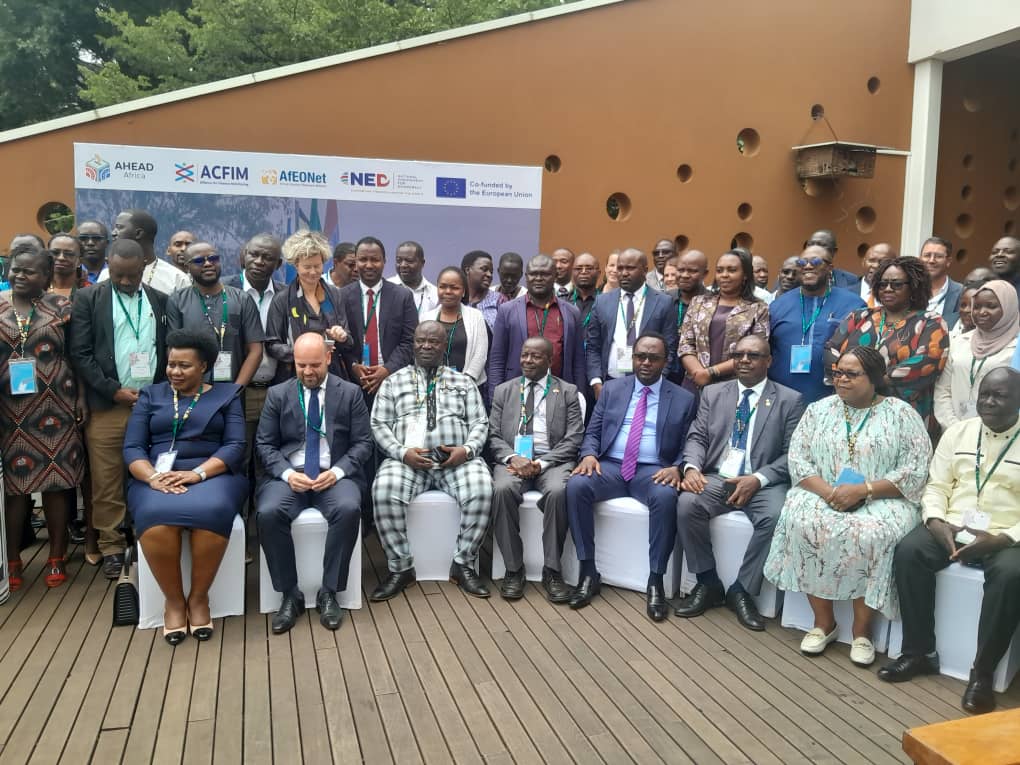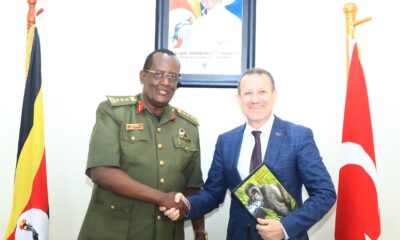
Kampala summit seeks to strengthen electoral transparency, accountability in Africa
Different electoral stakeholders across Africa in the a group photo at summit in Kampala (PHOTO/Nelson Mandela).KAMPALA – The inaugural Electoral Integrity Summit in Africa brought together experts and stakeholders from across the continent to discuss the challenges and opportunities facing electoral integrity in Africa. The summit, held in Kampala, Uganda, on September 10th, 2024, aimed to strengthen electoral transparency, public oversight, and collaborative reforms.Henry Muguzi, Executive Director of the Alliance for Finance Monitoring (ACFIM), emphasized the importance of citizen election observation in building and safeguarding election integrity. He noted that election observers provide a crucial bridge between the electorate and electoral institutions, and their role cannot be underrated.Muguzi highlighted the significance of the summit, saying, “This summit is one in a series of efforts aimed at safeguarding and advancing democracy in Africa. We aim to bring together people into conversations on democracy because it’s essential that citizens remain at the forefront of shaping it.”Muguzi also noted that the summit was a response to the growing concerns about electoral integrity in Africa, where several countries have experienced disputed elections, violence, and manipulation of the electoral process.He emphasized that the summit aimed to provide a platform for stakeholders to share experiences, challenges, and best practices in ensuring electoral integrity.David Onen, Political Affairs at the East African Community (EAC), highlighted the importance of gender equality, social justice, and other rights and freedoms in ensuring electoral integrity. He emphasized that electoral processes must work together with other aspects of the system to deliver credible elections.Onen noted, “We cannot talk about electoral integrity without considering the broader context of democracy. Gender equality, social justice, and other rights and freedoms are essential components of electoral integrity.”He also emphasized the need for electoral management bodies to be independent, impartial, and transparent in their operations. He noted that the EAC had developed a framework for electoral integrity, which includes guidelines for electoral management bodies, political parties, and civil society organizations.Dr. Sallie Simba Kayunga, Commissioner at the Uganda Electoral Commission, emphasized the importance of a clean voter register, nomination, and the right to participate in the electoral process.He noted that the commission will display the voter register at all polling stations for three weeks to ensure accuracy and uphold the right to stand as candidates. Kayunga said, “We believe in relation to the right to vote, the voter register should be 100% clean. That is the best way of ensuring that subsequent events will result in a highly respected electoral process.”The summit featured panel discussions, presentations, and interactive sessions, providing a platform for stakeholders to share experiences, challenges, and best practices in ensuring electoral integrity. Participants included electoral management bodies, civil society organizations, political parties, and international organizations.One of the panel discussions focused on the role of technology in ensuring electoral integrity. The panelists noted that technology had the potential to enhance electoral integrity, but also posed risks, such as cyber attacks and manipulation of the electoral process.Another panel discussion focused on the importance of inclusive elections, where all citizens, including marginalized groups, have the opportunity to participate. The panelists noted that inclusive elections were essential for building trust and confidence in the electoral process.The summit also featured a presentation by the African Union’s Political Affairs Department, which highlighted the importance of electoral integrity in promoting peace and stability in Africa. The presentation noted that electoral disputes and violence had been a major challenge to peace and stability in Africa, and that ensuring electoral integrity was essential for promoting democracy and human rights.Through this summit, ACFIM aimed to continue its efforts in safeguarding and advancing democracy in Africa, following previous summits in Lusaka, Zambia, Accra, Ghana, and Nairobi on artificial intelligence and elections in Africa. The summit sought to amplify the voices of election observers, foster strong observation between electoral management bodies, regional platforms, and other stakeholders. It also aimed to reflect on the significance of International Democracy Day, which is celebrated on September 5th, 2024.Relatedhttps://www.pmldaily.com/news/2024/09/kampala-summit-seeks-to-strengthen-electoral-transparency-accountability-in-africa.html
News
Ugandan Citizen Abducted, Held in Secret Detention for Three Months, Sparks Outrage and Calls for Justice

A disturbing new case of unlawful detention has surfaced, highlighting the ongoing human rights crisis in Uganda. A Ugandan citizen was reportedly abducted and held in a secret facility, known as a “safe house,” for three months, only to be released without charge or explanation. This incident, reported by NTV Uganda, has sparked widespread condemnation and renewed calls for accountability regarding human rights abuses in the country.
While the details surrounding the abduction remain unclear, reports indicate that the individual was taken without due process and held incommunicado—an action that has long been condemned by human rights organizations. The victim’s release, with no charges filed and no clear justification, has angered activists and citizens, who view this as yet another case of egregious abuse of power by the state.
“This is a recurring pattern,” said one human rights activist. “Abductions, secret detentions, and unexplained releases have become all too common in Uganda. These acts violate fundamental human rights and erode public trust in the justice system.”
The use of “safe houses,” unregistered detention facilities reportedly operated by security forces, has been a focal point in numerous allegations of torture and illegal imprisonment. Despite repeated calls from both local and international organizations for their closure and accountability for those involved, little action has been taken to address these violations.
This case underscores the urgent need for reform within Uganda’s security apparatus and greater accountability for human rights abuses. Observers hope that drawing attention to these injustices will spur concrete action to bring those responsible to justice and ensure the protection of basic human rights.
As frustration mounts, calls for both domestic and international pressure to hold the government accountable for such crimes grow louder. “One day, there must be accountability for all these crimes against our people,” stated one social media user, reflecting the sentiments of many Ugandans.
News
NUP Gathering Disrupted: Kyagulanyi Alleges Security Force Harassment and Arrests

National Unity Platform (NUP) President Robert Kyagulanyi has accused Ugandan security forces of using excessive force to disrupt a planned NUP gathering. The allegations were detailed in a statement shared on Twitter, following an event held to honor children of NUP supporters who were killed, disappeared, or detained for their political beliefs.
According to Kyagulanyi, security personnel, under the command of an officer identified as Asiimwe, carried out a preemptive operation early in the morning upon learning of the NUP’s plans. The forces allegedly stormed the premises, arrested workers, and deployed tear gas to disperse those present.
“The criminals under the command of one Asiimwe deployed early morning, arrested our workers, and threw tear gas into our premises. They’ve cordoned off the premises and blocked all people from accessing the place,” Kyagulanyi wrote.
Among those reportedly arrested were Saava Peter, Mudenya Samson, and Turyasingura Samson. Kyagulanyi claimed the detained workers were subjected to beatings and interrogated about their political affiliations, with security operatives labeling them as terrorists.
“These JATT operatives asked the workers who they support politically, branding them terrorists and criminals—their only crime being that they work with us. You can imagine the indignity!” Kyagulanyi lamented.
This incident adds to the growing tension in Uganda’s political climate, where opposition parties frequently accuse the government of stifling dissent. Despite the challenges, Kyagulanyi ended his statement with a message of defiance and optimism, proclaiming, “UGANDA WILL BE FREE.”
NUP Gathering Disrupted: Kyagulanyi Alleges Security Force Harassment and Arrests
News
Sudan Demands Apology from Uganda Over Army Chief Muhoozi Kainerugaba’s Threat to Invade Khartoum

Sudan has demanded an official apology from Uganda over “offensive and dangerous” comments made by the chief of Uganda army staff, who threated to invade Khartoum, the Sudan Tribune has reported.
General Muhoozi Kainerugaba, son of Ugandan President Yoweri Museveni and CDF of the Ugandan army, posted two comments on the X platform on Tuesday in which he threatened “to capture Khartoum” with the support of the US President elect Donald Trump after he takes office. The posts were deleted later.
“The government of Sudan demands and official apology from the Ugandan government for the offensive and dangerous comments of the army commander,” Sudan’s foreign ministry said in a statement that the Sudan Tribune said it has seen.
Sudan Demands Apology from Uganda Over Army Chief Muhoozi Kainerugaba’s Threat to Invade Khartoum








